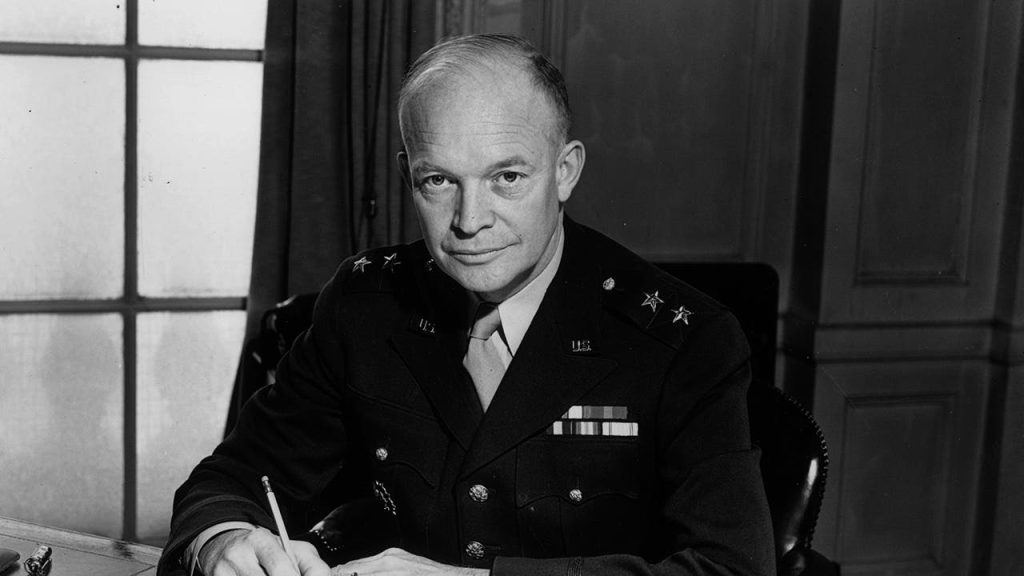On June 25, 1942, Dwight D. “Ike” Eisenhower was appointed as the commanding general of the European Theater during World War II. Born in Texas and raised in Kansas, Eisenhower began his military career at West Point and quickly rose through the ranks. His leadership skills and military expertise were evident as he excelled in various staff assignments under prominent generals. After the United States entered World War II, Eisenhower played a crucial role in drafting a basic strategy for the war against the Axis powers. He was eventually named supreme commander of the European Theater, overseeing military operations such as Operation Torch, the invasion of North Africa.
Eisenhower’s military successes continued as he conducted landings in Sicily and Italy, eventually negotiating an Italian surrender. He was then appointed as the supreme commander of the Allied Expeditionary Force for the invasion of Europe, also known as Operation OVERLORD or D-Day. Despite facing challenges such as limited resources and the need for strategic surprise, Eisenhower’s meticulous planning and leadership were instrumental in the success of the invasion on June 6, 1944. After World War II, Eisenhower served as the chief of staff of the United States Army and later became the president of Columbia University.
In January 1952, Eisenhower announced his candidacy for president, running as a Republican with a focus on maintaining military strength while avoiding excessive military expenditures. With the help of the popular slogan “I Like Ike,” Eisenhower won the presidential election in 1952 in a landslide victory over Democrat Adlai Stevenson II. He became the first Republican president in 20 years and went on to serve two terms, winning re-election in November 1956. Throughout his presidency, Eisenhower emphasized the importance of maintaining military strength while also advocating for peace and cautioning against excessive military spending that could threaten the country’s way of life.
Before leaving office in January 1961, Eisenhower reiterated the necessity of a strong military but also expressed his hope for peace in the future. His presidency was marked by a focus on national defense, diplomacy, and efforts to maintain peace during the Cold War era. Eisenhower’s legacy as a military leader and president continues to be remembered for his strategic vision, leadership skills, and commitment to maintaining peace while ensuring national security.


